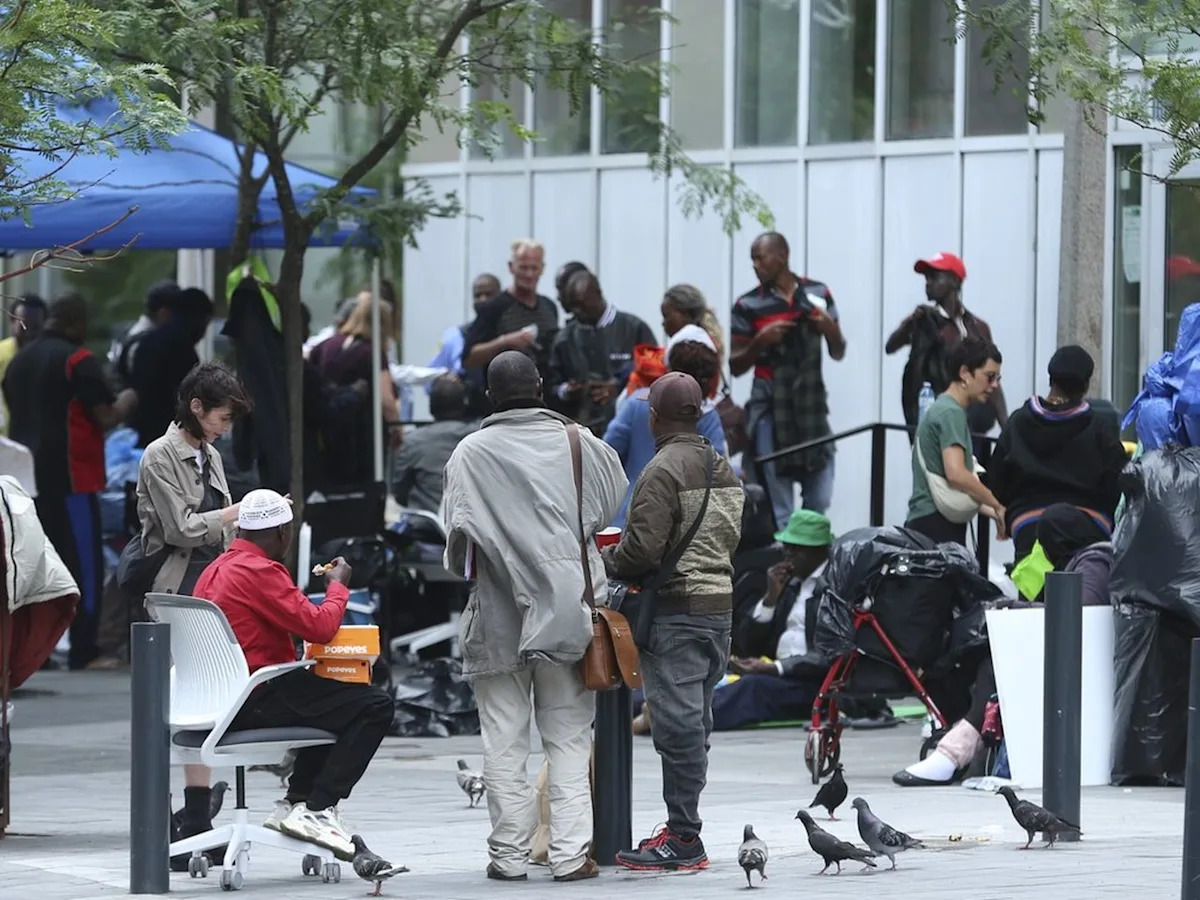Toronto Mayor Olivia Chow recently threatened to increase property taxes by two per cent to cover the increasing costs associated with housing asylum claimants in the city’s shelter system, if she doesn’t first get the funds from the federal government. This would be over and above whatever tax rate increase she was already planning.
This isn’t the right way to go about solving the crisis of so many asylum claimants residing in our shelters, motels and streets. It’s not the taxpayers’ fault.
Currently, asylum claimants make up close to half of the Toronto shelter population — displacing the traditional homeless population.
Instead, we need to look at the policies within our control at different levels of government. While Chow has no formal say in federal refugee policies, she can end one policy that only worsens the situation: Toronto’s sanctuary city policy. It’s time for it to be retracted.
The policy was enacted in 2013 with the goal of ensuring that residents whose legal status has lapsed aren’t denied access to basic city services.
Politicians never campaigned on it. The public didn’t have a say.
As a city report put it at the time, “the majority of undocumented workers and their families enter the country through authorized channels as refugee claimants, or as individuals with a valid student, temporary foreign worker or visitor visa.”
The way it was pitched was that residents who legally entered the country shouldn’t be denied basic city services as they get their paperwork and appeals sorted out to be allowed to stay longer.
It seemed more reasonable back then. A lot has changed in the past decade though.
For example, the report insisted that “unauthorized land entry, commonly seen in the United States of America, is a far less common occurrence in Canada.”
But starting in 2017, Canada experienced a massive ramp-up in the volume of people crossing illegally into the country. These people made their way to Toronto, Montreal and other cities, including Niagara Falls — where the hotels soon filled up with border crossers.
This increase was caused in part due to misinformation spread by none other than the public figures tasked with responsibly managing our system — such as former prime minister Justin Trudeau, whose notorious 2017 #WelcomeToCanada social media post led the world to incorrectly believe that we had open borders.
But the other is the signal that is sent by having sanctuary city policies in the first place. It’s one thing to adopt the discretionary humane approach to not deny a person, say, emergency health care if they can’t produce the right paperwork on the spot.
It’s quite another to host an Undocumented Residents Day at City Hall, which Toronto currently does, celebrating and encouraging people to be in Canada illegally — even after they have been denied appeals and have been issued deportation orders.
We would have far less of a capacity issue at our shelter system if we were more responsible with our immigration policies and how we communicated the rules to people.
Politicians and media routinely speak as if pending asylum claimants, refugees, rejected claimants, illegal border crossers and regular immigrants are all the same. This sows confusion and is deeply offensive to the many millions of Canadian immigrants who came here in an orderly and law-abiding fashion.
It’s important to keep in mind that asylum claimants are not, by definition, refugees. They have not yet been granted refugee status. As the data reveals, depending on the year and their country of origin, about half of applicants are in fact rejected for not meeting the definition.
If we want to talk about inhumane policies, it’s inhumane to send false signals to people that they should upend their lives to come to Toronto and face no consequences when in fact they have a good chance of being deported and will languish in shelters while they wait.
When Toronto first enacted its sanctuary city policy we were living in simpler times, when we faced fewer immigration challenges and less stress on the system. Now, as the shelter statistics reveal, we don’t have the luxury of keeping a policy in place that sends the message that rules don’t matter.
Prime Minister Mark Carney and Mayor Chow definitely need to work together to solve the capacity issues in Toronto’s shelter system. But the knee-jerk solution of taking more from the Toronto taxpayer isn’t the answer.
National Post
Anthony Furey, a former longtime Postmedia columnist, ran for Mayor of Toronto in the 2023 election. Email him at anthony@furey.ca.
